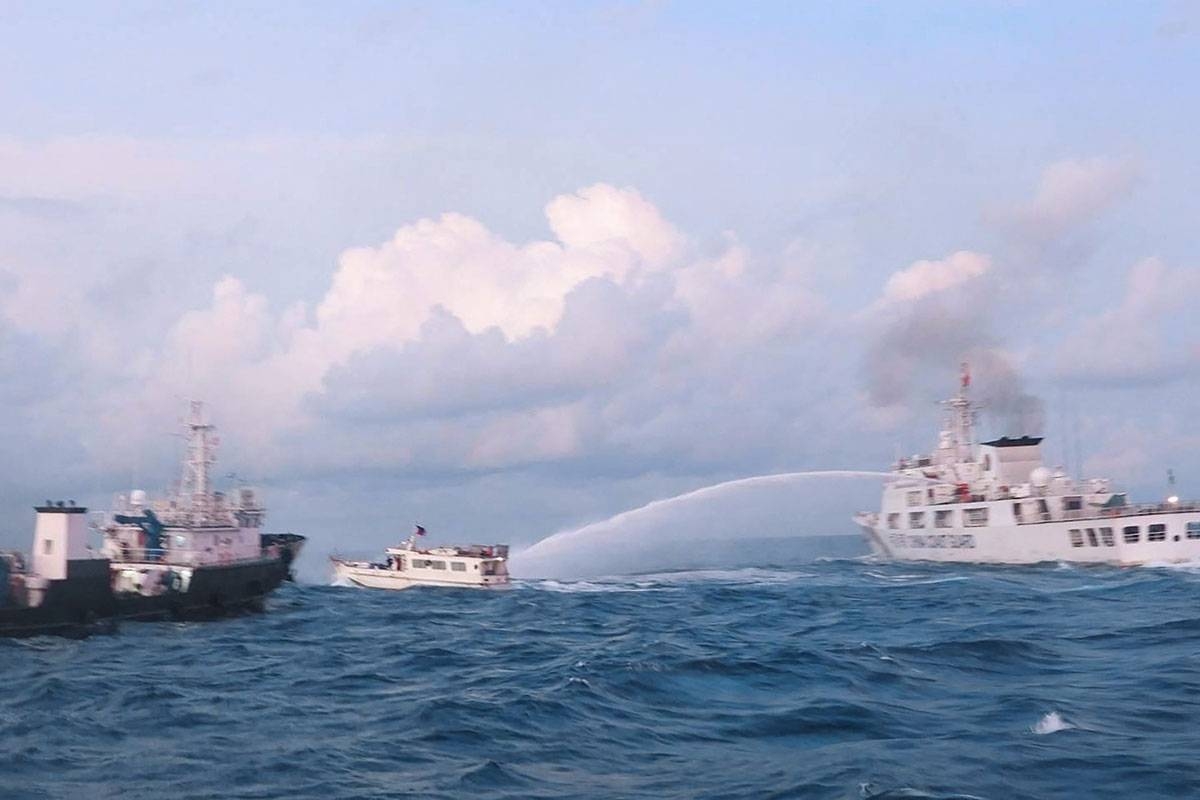China’s actions in the disputed West Philippine Sea have raised concerns of an intensified disinformation campaign aimed at pushing its claims in the region, according to Dr. Sherwin Ona, an analyst and associate professor of political science and development studies at De La Salle University. During the Bagong Pilipinas briefing, Dr. Ona highlighted that China’s tactics fall under what is known as the grey zone, a long-term strategy to enforce its narrative.
While China flexes its military muscles to intimidate, Dr. Ona believes that the country is unlikely to initiate a war. Instead, China aims to make it appear as if the Philippines is encroaching on its territory. Dr. Ona emphasizes that China’s power extends beyond its military, with aggressive moves from its militia and coast guard, as well as a united front involving its government and private sector to push a pro-Beijing narrative. This concerted effort aims to dominate China’s version of the events in the West Philippine Sea and flip the story to favor their claims.
Dr. Ona suggests that analyzing China’s playbook is crucial. While they are capable of armed conflict, their preference lies below the threshold of open warfare. Disinformation plays a significant role in convincing both Filipinos and the international community that China is in the right. By proliferating false information, China attempts to shape public opinion and legitimize its actions.
According to Dr. Ona, the best course of action for the Philippines is to collaborate with other claimant countries. By doing so, the Philippines can demonstrate that any violation of its rights also infringes upon the rights of other nations relying on the West Philippine Sea. Strengthening alliances and partnerships will help build a united front against China’s assertive actions.
Furthermore, Dr. Ona emphasizes the importance of modernizing the coast guard, navy, and armed forces of the Philippines. Additionally, he advocates for a Whole-of-Society Approach, which involves the active participation of all sectors of society in defending the country’s rights and interests in the West Philippine Sea.
Meanwhile, in a telephone conversation with General Romeo Brawner, Chairman of the US Joint Chiefs of Staff, General Charles Brown Jr., a top US military leader, pledged to provide vital information to the Armed Forces of the Philippines (AFP) for their missions in the West Philippine Sea. Although not elaborating on the details, General Brown assured that the US would continuously support the Philippines, including the reprovisioning of troops stationed on BRP Sierra Madre.
The conversation between the two military leaders also touched upon joint maritime patrols, the Enhanced Defense Cooperation Agreement, and the upcoming 2024 Balitakan exercises. General Brown expressed his concern over China’s harassment in the region and reiterated the US’s support for the Philippines.
In addition to the US, the Philippines has also conducted joint patrols with Canada, Japan, and Australia in its territorial waters, further strengthening regional cooperation in the face of China’s aggressive actions.
The Makabayan bloc in the House of Representatives has called for a probe into the use of water cannons by the China Coast Guard (CCG) against Philippine vessels earlier this month. This move reflects the Philippine government’s determination to address and seek accountability for China’s actions in the West Philippine Sea.
As tensions continue to rise in the West Philippine Sea, it is crucial for the international community to stay informed and engaged. Understanding China’s tactics and the Philippines’ efforts to protect its rights and interests in the region is vital for a comprehensive assessment of the situation.







